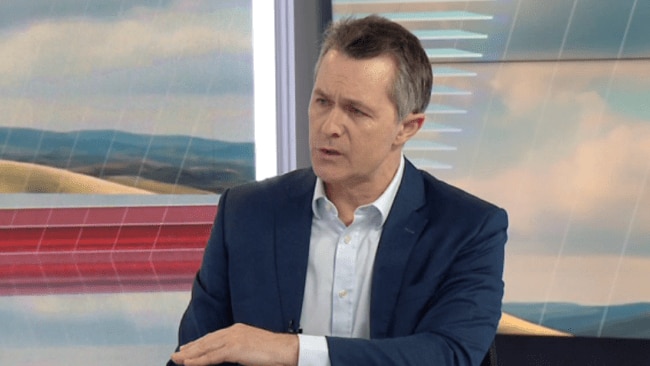Education Minister Jason Clare has responded to concerns over the new education services amendment legislation which sets a cap on universities enrolling international students.
The Education Services for Overseas Students Amendment (Quality and Integrity) Bill 2024 is intended to limit the enrolments of overseas students by provider, course or location, over a year.
The new legislation involves the introduction of multiple ministerial powers, including the ability of pausing the registration of new providers and new courses by registered providers.
The Bill has been referred for inquiry and report by August 15.
Mr Clare said since the COVID pandemic, international students have increased rapidly with some universities calling on the minister to institute a regulation.
The education minister said a similar issue was facing the UK and Canada, and it was important Australia maintained the “social license” on one of our top exports.
“Remember, this is the biggest export we don’t dig out of the ground,” he said.
“It’s worth $48 billion and if we set this up and regulate it the right way, it’ll help to make sure we can continue to have that sector grow over the long term.”
Mr Clare said it was about a 70-30 ratio of domestic students to international students “across the board”, while at some universities, such as University of Sydney it is higher, but “much lower” at others.
“International education is an asset. It makes us money, it creates jobs here in the country, but it also does something else,” he said.
“It makes sure that if someone studies here in Australia, they go back home and if they love their experience in Australia they take that back home with them.
“In the world we live in, that’s really important.”
Mr Clare said the purpose of the new legislation was to “incentivise” more student housing and set limits for individual universities as there was simply not enough accomodation for all students.
“And if you build more housing, there’s only 78,000 student accomodation places in Australia at the moment, then we’ll allow you to have an increase in that cap,” he said.
When asked if he would like a decrease in the current level of 700,000 foreign students in Australia currently, Mr Clare said he would want to see it grow “sustainably over time”.
“It’s not about pulling out the meat axe,” he said.
Mr Clare said he the government had taken a number of steps of reinforcing the “integrity” of the study visa system in light of the “unlimited work rights” foreign students had when returning after the pandemic.
He said if students were here to study they should not be spending “all of your time working”, highlighting the “backdoors in the system” which encouraged people to enroll in university, before switching to a VET course and “never turn up”, using the VET course as the “price you pay to work here”.
Mr Clare said it was important to tackle all the areas where the system was being “corrupted” while at the same time setting it so that it was regulated in the same way domestic students were.
“Students are back, post-pandemic, but so are the shonks, and in some circumstances the crooks that feed off international education,” he said.
“So this legislation is about tackling that as well. But students are back faster than anyone expected as well.
“And so this enables us to set a cap on the number of students at individual universities, but also vet providers as well, and potentially for courses.”
Mr Clare said there was about 10 per cent more international students in Australian universities and about 50 per cent more international students in vocational institutions currently compared to before the COVID pandemic.
When asked if every single university would have a cap, Mr Clare said that was “correct”, but it would not be directly applicable to individual courses.
“In a sense that’s a reserve power, I’m expecting the focus here, and the work that we’ll do will take place over the next three months to set what those caps are, but the focus will be on the caps for the institutions rather than the courses,” he said.
Mr Clare said a lot of universities had asked for some kind of legislated limitation on international students.
“Over the course of this year, home affairs have really amped up the integrity measures that they’ve taken to make sure that people who were given a visa are here for the right purposes,” he said.
“That’s meant some universities this year have got more students than last and other universities have got a lot less.
“So a lot of universities, in particular smaller universities, have said to me, ‘we would prefer a different system where you set a level or a cap for us each and every year,’ and that’s what this legislation does.”
Mr Clare said for domestic students there was a cap on the amount of money the government provided to universities in funding but not for international students.
“Doesn’t work like that for international students at the moment,” he said.
“So I think there’s a certain logic and common sense here, that if we regulate the number of Australian students, that we should do that also for international students.”

